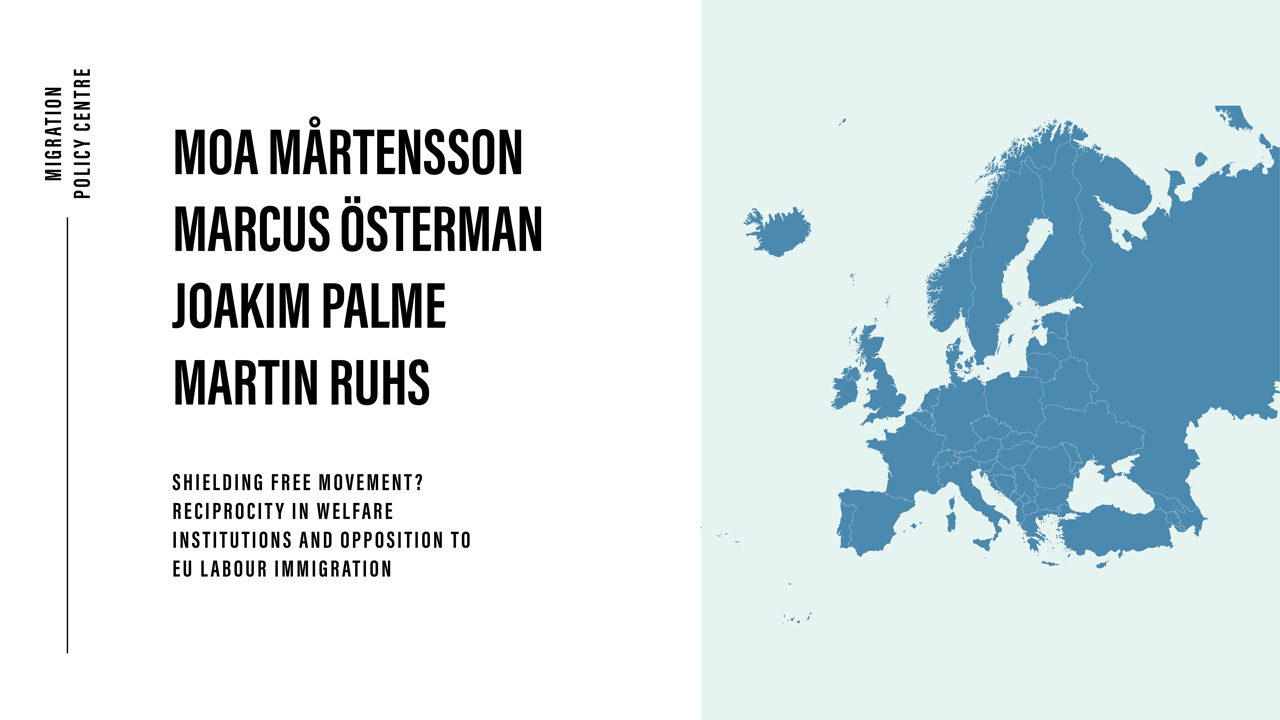Public attitudes towards the free movement of workers in the European Union vary substantially between countries and individuals. This paper adds to the small but growing research literature on this issue by analysing the role of national welfare institutions. We investigate the relationship between the degree of ‘institutional reciprocity’ in national systems of social protection and attitudes to EU labour immigration across 12 European countries. We do not find evidence of an effect of institutional reciprocity on opposition to EU labour immigration among the public at large. However, institutional reciprocity appears to matter for economically vulnerable groups. We identify an interaction effect indicating that higher degrees of institutional reciprocity in national social protection systems, and in unemployment insurance systems specifically, are associated with lower levels of opposition to EU labour immigration among unemployed people. Hence, reciprocity in welfare state institutions appears to shield free movement from opposition, at least among vulnerable groups.
This is an abstract of an article by Moa Mårtensson, Marcus Österman, Joakim Palme and Martin Ruhs.
(Publisher: European University Institute, Date: 11th of October, 2021 ; Keywords: European Union , Free Movement , Public Attitudes , Reciprocity).
Acknowledgements
For their helpful comments, authors of this policy brief would like to thank three anonymous reviewers and the editors of JEPP. They are also grateful to the colleagues in the Horizon-2020 funded REMINDER project and participants in workshops at Oxford, Uppsala, and the EUI.
